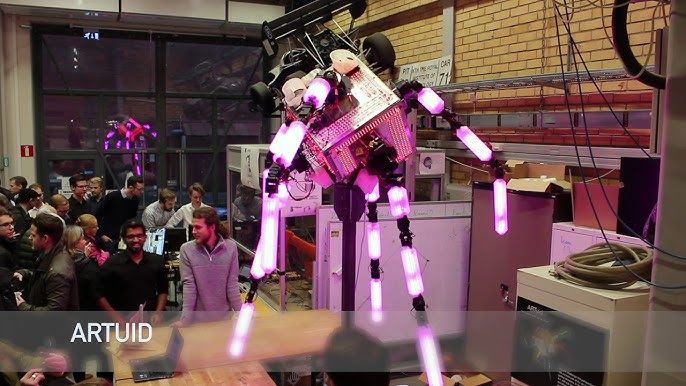The course starts by assigning students to projects based on individual criteria and skills. The project teams normally consist of about 7-10 students. A couple of seminars and workshops are held on subjects (equality, diversity & equal treatment, project work, sustainability, literature search) that are relevant for complex projects in mechatronic development projects in a relatively large development team.
The course focuses on product development of sustainable mechatronic products in large projects. Innovative and intelligent products are created by developing knowledge and skills in mechanics, motion control, robotics, embedded systems, real time programming and distributed systems. The course is based on problem-based learning and on work in larger projects, where the ability to be engaged in professional development while developing cooperation, communication and project management skills are practised.
In the learning environment, team building, teamwork and industrial cooperation are integrated parts. The student teams work in collaboration with representatives from industry to decide the specific factors that govern the product requirements, and its design and realisation. It includes interested parties' (stakeholders') needs, the interested parties' requirements, system requirements, component requirements and validation, verification and testing. During the first period, a State-of-the-Art (SOTA) survey should be carried out, based on literature searches on the specific problem in the project. During remaining time, students work in their respective groups with design, testing and validation. The work is documented in a final technical report. The students do much building work on their own and have full access to modern machines such as 3D printers, laser cutters, milling machines, waterjet cutting machines and common workshop machines.
